Vitamin B12, also known as cobalamin, is an essential nutrient that helps with cellular energy production, brain function, DNA creation, and more. As a trainer and nutritionist, I am always encouraging my clients to pay attention to their daily vitamin B12 intake, as it can help ward off symptoms like fatigue and anemia. Getting enough of this specific nutrient can be especially concerning for those who follow vegetarian and vegan diets, as most foods high in vitamin B12 are only found in animal products.
For adults, the daily recommendation is 2.4 micrograms. To make sure you are getting in enough to support your overall health, keep reading to learn about the best foods to include in your diet.
Clams
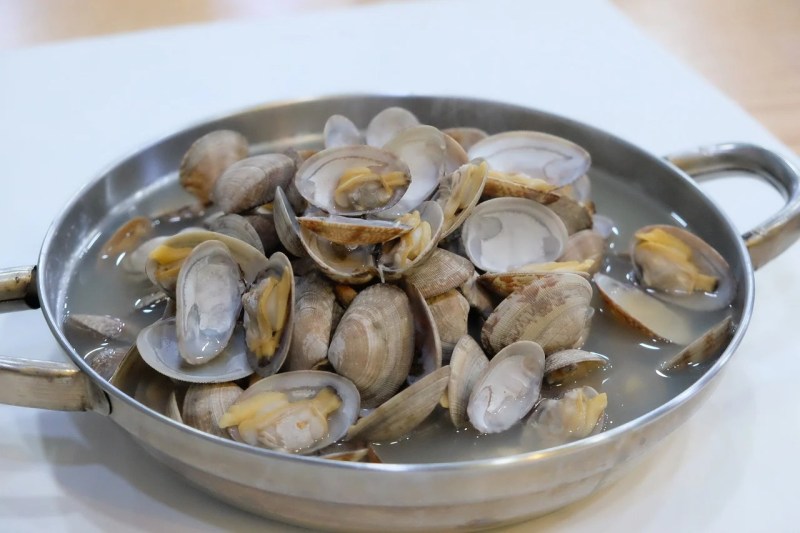
Shellfish are rich in nutrients like protein and zinc, which are critical for immune health. They are also among the best sources of vitamin B12. For example, a 3-ounce serving of clams packs a whopping 84.1 μg or 3,502% of the daily value (DV) of vitamin B12. Oysters, mussels, and scallops are also great sources of vitamin B12, with a 3-ounce serving of each providing 24.5 μg (1,020% DV), 20.4 μg (850% DV), and 1.8 μg (76% DV), respectively.
When trying to visualize shellfish servings, three ounces is roughly equivalent to three oysters, five mussels, or ten small scallops, which gives you a sense of how potent the vitamin B12 content is in shellfish.
Beef liver
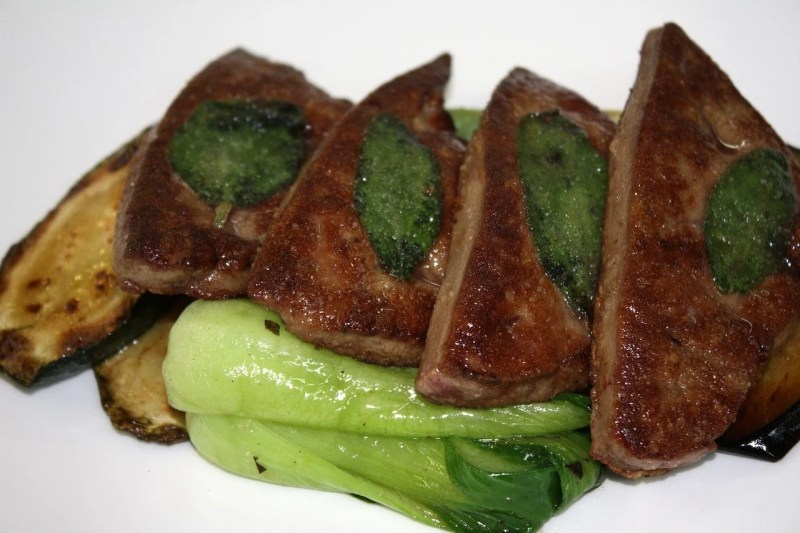
It can take some convincing to get many people to eat liver, but the nutritional profile can make a strong case. Liver is an extremely rich source of nutrients like iron, vitamin A, selenium, and copper. It’s also high in vitamin B12 because excess vitamin B12 is stored in the liver.
A 3.5-ounce serving of lamb liver, for instance, contains an incredible 85.7 μg, which is equivalent to 3,571% of the daily value. Beef and veal liver are close seconds, also providing over 3000% DV. Kidneys are also an excellent option for meeting your B12 needs.
Fortified breakfast cereal
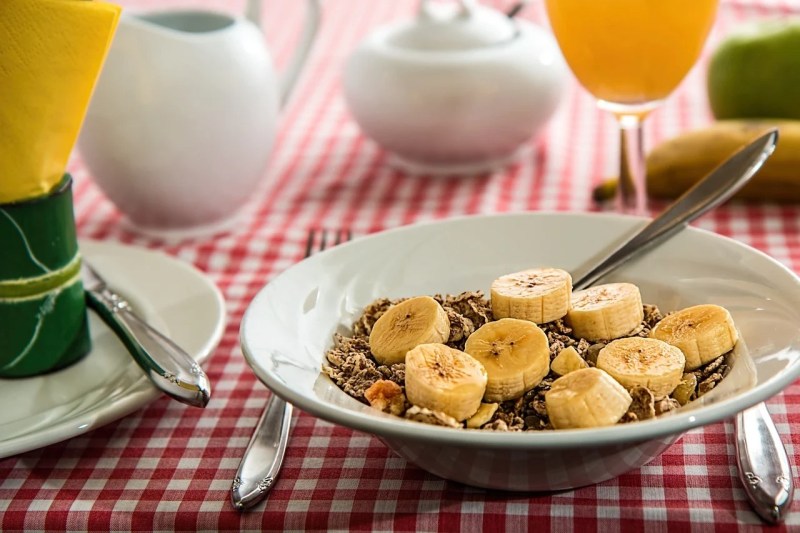
Vegans and vegetarians often turn to supplements for their vitamin B12 needs, but healthy, fortified breakfast cereals are another viable option. Depending on the cereal, you may be able to meet your vitamin B12 needs — or even exceed them — by the time you’ve headed off to work in the morning. Pairing cereal with fortified milk or soy milk will further boost your intake.
The vitamin B12 content of a cereal depends on the particular type of cereal. Some of the list toppers for cereals with the most vitamin B12 are Kellogg’s All-Bran Complete Wheat Flakes, Kellogg’s Special K Low Fat Granola, Kellogg’s Special K, General Mills Whole Grain Total, General Mills Multi-Grain Cheerios, and Kashi Heart to Heart Oat Flakes. Many of these cereals offer 100% of the DV of vitamin B12 per serving.
Milk and other dairy
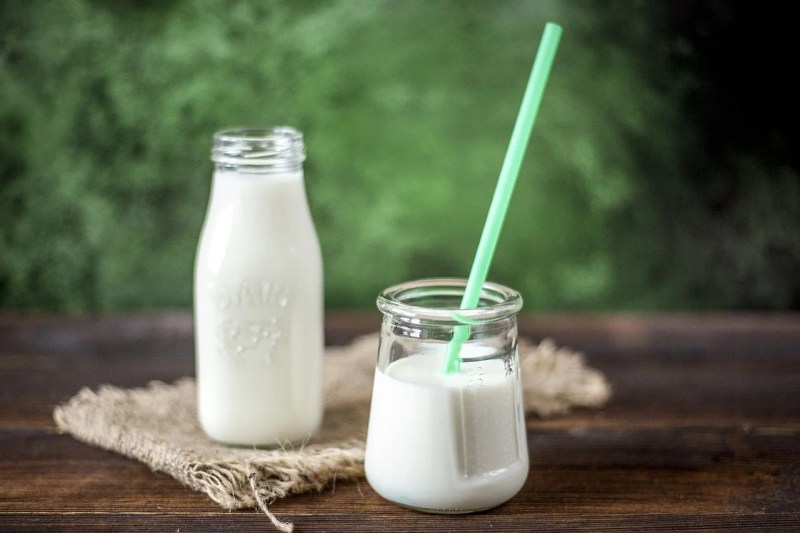
Milk and other dairy products are also decent sources of natural vitamin B12. An 8-ounce glass of low-fat milk contains 1.3 μg (54% DV) of vitamin B12. Whole milk contains slightly less. Nonfat plain yogurt and low-fat plain yogurt provide about 60% and 40% of the DV per cup, respectively.
If you love cheese, opt for Swiss cheese, cheddar, or mozzarella, as these contain the most vitamin B12. Cottage cheese is also a good source, providing about 22% of the daily value per 1/2 cup serving. Milk and dairy are also excellent sources of tryptophan, which is why a warm glass of milk before bed can promote a peaceful night’s sleep.
Tuna
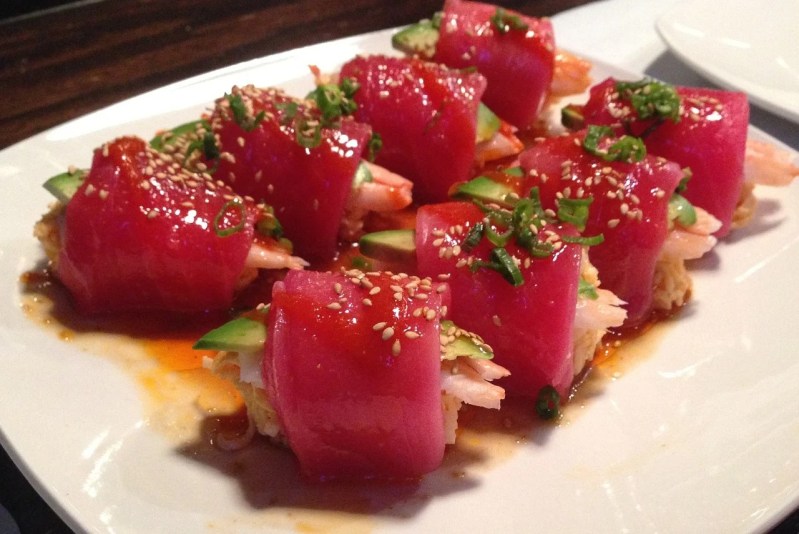
Tuna is a go-to source of protein and a convenient lunch choice for many people, and as it turns out, while getting your dose of lean protein, you’re also getting quite a lot of invigorating vitamin B12. Whether you like tuna sushi or a meaty tuna steak, a 6-ounce fillet provides 18.5 μg (771% DV) of vitamin B12.
Tuna is also rich in biotin, a key nutrient for your hair and nails, as well as omega-3 fatty acids, which reduce inflammation and promote heart health. Other fatty fish are also high in vitamin B12. For example, mackerel contains nearly 1.5 times as much vitamin B12 as tuna. Herring, canned sardines, trout, and snapper are also great choices.
Eggs
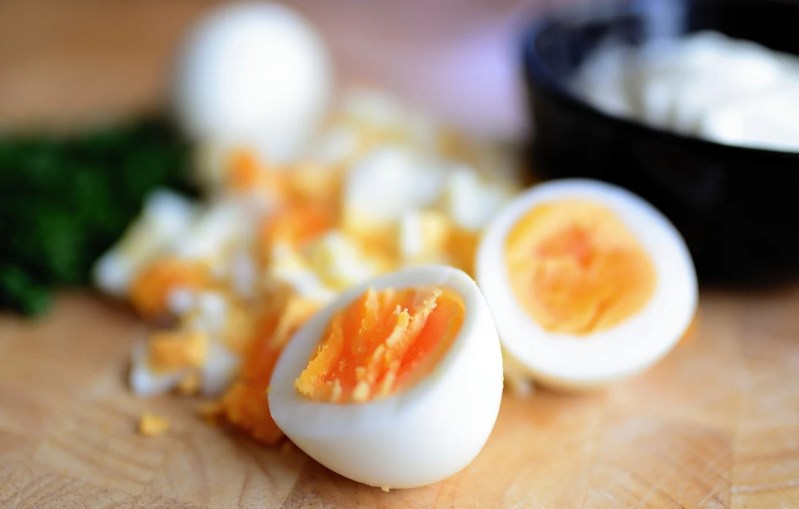
Eggs are little natural packages of vital nutrients. An egg is a complete source of protein, meaning it contains all essential amino acids. Egg yolks are also rich in vitamin D, a fat-soluble vitamin that plays an important role in bone health, along with iron, which helps transport oxygen in the blood to every cell and tissue in the body.
Egg yolks are also rich in B vitamins, especially biotin, with ten mcg of biotin (33% DV) per whole egg, along with vitamin B12. Each egg provides 0.6 μg (23% DV) of this energizing nutrient. One cup of scrambled eggs contains 70% of the daily value.
Nutritional yeast

Nutritional yeast, which is a fortified nutritional product used in many vegan cheeses and non-dairy substitutes, provides many vitamins, minerals, and essential amino acids. It’s an edible yeast like brewer’s yeast, though it is not used as a leavening agent in bread or beer.
Vitamin B12 in nutritional yeast is synthetic — as is the case with supplements — since it is not derived from animal products. That said, it’s a good option for vegans. There are 17.6 μg (733% DV) in every 2-tablespoon serving of nutritional yeast. If you’re not sure how to use it, think of it somewhat like a Parmesan cheese substitute. Sprinkle it on salads, pasta dishes, soups, or even popcorn.
Beef

Whether you’re a burger guy, a steak guy, or a short ribs lover, you’ll be pleased to know that beef is one of the best dietary sources of vitamin B12. A six-ounce skirt steak provides 12.8 μg of vitamin B12, which is 533% of the daily value. Choosing beef round, short ribs, or hamburgers won’t land you nearly as high on your vitamin B12 needs; that said, you’ll still get nearly 100% of your daily value in each of those options.
Other red meats, such as buffalo and lamb shank, also provide a decent dose of vitamin B12. Opt for lean cuts to maximize the nutrient value. With any of these options, you’ll also get a hefty dose of iron, which is necessary for carrying oxygen throughout your body.
King crab
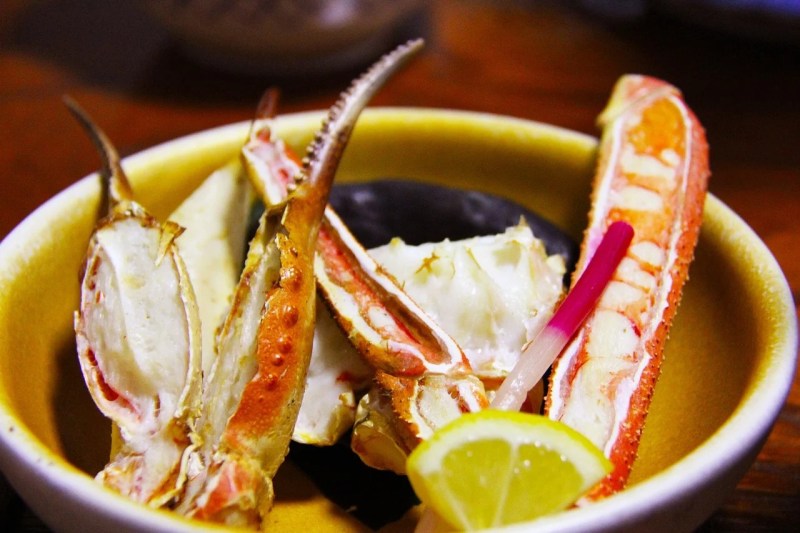
In addition to shellfish and certain varieties of fatty fish, other seafood also contains high levels of vitamin B12. A single king crab leg provides 15.4 μg, or 642% of the daily value, while a 3-ounce portion of Dungeness crab provides 8.8 μg. Crayfish, shrimp, and lobster are also high in vitamin B12, along with other nutrients like selenium and omega-3 fatty acids.
Fortified soy milk
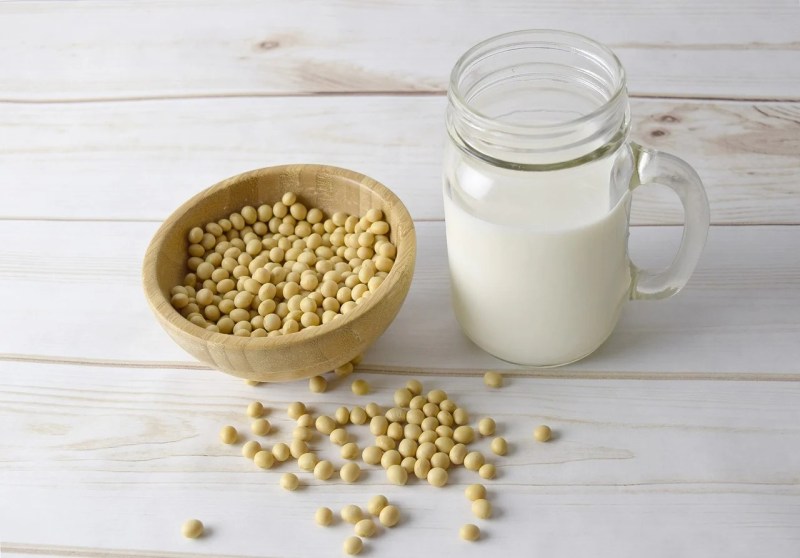
Although soy milk doesn’t naturally contain vitamin B12, most manufacturers fortify it with this energy-producing vitamin to help those following plant-based diets to meet their nutrient needs. An 8-ounce glass of fortified soy milk usually contains about 3 μg (125% DV) of vitamin B12. Other non-dairy milk, such as almond and coconut, are also typically fortified to the same extent. Rice milk tends to be lower, with about half that amount, 1.5 μg, per 8-ounce glass.
Tofu is another great option for vegans, as it also tends to be fortified with vitamin B12. Each cup contains roughly 3.3 μg (137% DV). Soy, which is a nutritious legume, is also packed with antioxidants and phytonutrients, which make it an excellent food for prostate health.
Sardines
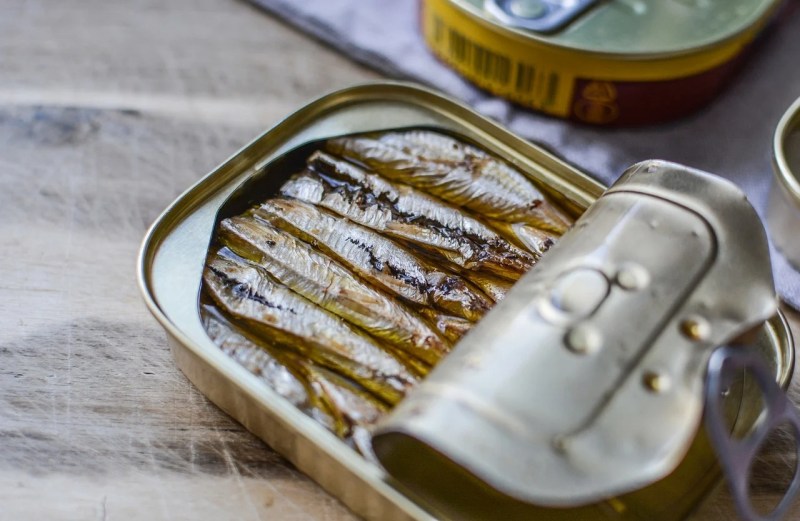
Sardines are mighty little nutritional powerhouses, providing tons of calcium, omega-3 fatty acids, and vitamin B12, among many other essential nutrients. Each cup of drained sardines offers 13.3 μg or 554% of the daily value of vitamin B12. You can buy canned sardines packed in oil, water, or various sauces or purchase them fresh. Fresh sardines take well to grilling or steaming and can be enjoyed atop salads or savory toast.
Chicken

Many of us turn to chicken for a good source of protein, but it also gives you a vitamin B12 boost as well. Chicken is not as high in vitamin B12 as some of the other foods on this list, as 1 cup of roasted chicken breast has 6.14 μg of the recommended daily intake of vitamin B12.
But chicken has the advantage of being an excellent source of lean protein with less saturated fat than some other meats, such as certain cuts of beef, which can help keep cholesterol down. The other advantage of chicken is you can prepare it in many ways, so you can get your vitamin B12 fix if you like it grilled, roasted, or baked.
Frequently asked questions

What are the benefits of vitamin B12?
Vitamin B12 does a lot for the body and is an important nutrient to include in your daily diet. According to Yale Medicine, “It’s essential for DNA synthesis, red blood cell formation, nerve function, and most importantly, converting food into energy.”
How can you tell if you have a vitamin B12 deficiency?
If you have a vitamin B12 deficiency, you may experience symptoms like fatigue, weakness, dizziness, and pale skin. Tingling or numbness in your hands and feet, difficulty walking, and balance issues are also signs. Because of vitamin B12’s role in brain health, someone with a deficiency may notice cognitive symptoms like memory problems, confusion, or mood changes. If untreated, a case of severe deficiency can lead to nerve damage, so getting a blood test to confirm your levels can be very helpful.




